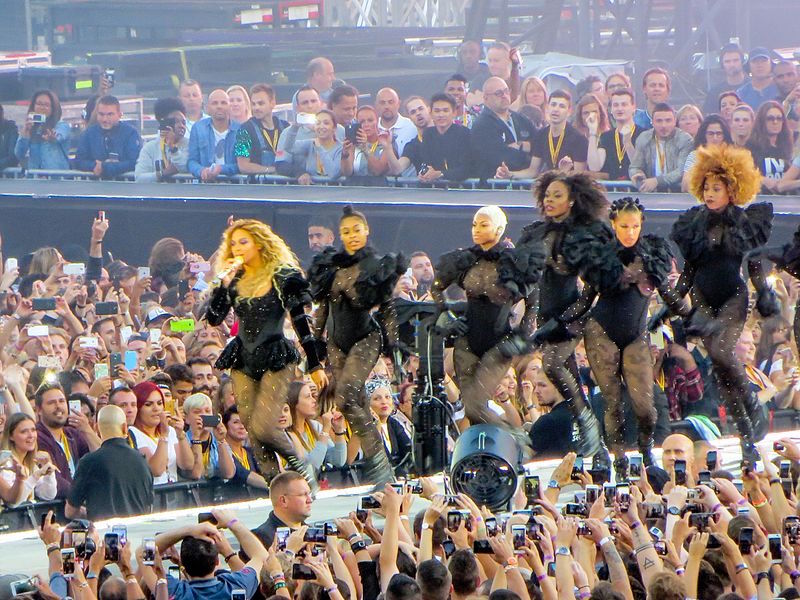2016 marked the highest rate of shootings against young, black males by police officers in the United States. As numerous headlines depict how race relations are getting worse in the U.S., many look to the powerful to stand up and criticize the tense relationship of diversity.
As a classic cultural establishment, the Grammys can be seen as one of those powerful institutions that could provide an opportunity to demonstrate that artists of colour do, indeed, have an important role in society.
However, after the 59th Annual Grammys on Sunday, February 12, people are questioning the institution’s commitment to progressing racial issues after all. After Album of the Year went to Adele’s 25, instead of her cohort, Beyoncé’s Lemonade, many, including the powerfully-voiced British singer herself, believed that the Grammys had yet again demonstrated a systemic racial issue within the institution.
Beyoncé released Lemonade as a visual album – an hour-long film to go along with her music taking on the pressing theme of black female empowerment. The creation explores the lives, bodies and minds of black women and pays homage to the coloured girls who have been forgotten by pop culture.
Beyoncé’s album is not the only current musical contribution that refers to racial issues. Since the Ferguson grand jury’s decision to not indict the police officer responsible for shooting Michael Brown, a number of black artists have used their artistic capabilities to take part in the political and racial strife following the shooting, which was the worst example of race relations falling apart in the United States. Protests had already started at the time of the shooting, but after the jury’s decision, protests continued for weeks more, prompting the discussion about race relations to resurface from under the carpet.
Celebrities, especially black artists, used their spotlight status to remember Michael Brown and those affected by police violence, bridging the disconnect between average person and celebrity as they spoke out against systemic racism. Since then, the friction between predominantly black communities and police forces has only worsened as tough policing continues. As the public comes to realize this friction, musicians have taken it upon themselves to amplify the discussion of race in pop culture.
In 2015, Kendrick Lamar released To Pimp A Butterfly, an album dedicated to expressing the complicated emotions stemming from the anger, fear and injustice associated with the Ferguson decision. It was also an album demonstrating the journey and struggle of Lamar to come to terms with the treatment of people like himself, wishing that “…someone would look into our neighbourhood knowing that it’s already a situation, mentally…” Lamar himself grew up in a gang-ridden and low-income neighbourhood surrounded by violence. As a teen falling into the stereotypes of young, black males, Lamar then turned to music. To Pimp A Butterfly recognizes that what happened to Michael Brown “should’ve never happened,” but also recognizes that “…when we don’t have respect for ourselves, how do we expect [the authority] to respect us?” The music seeks the answers to these questions, while keeping in mind a lesson learned from the autobiography of Malcom X: what do you want your legacy to be at the end of the day? In response to this, Lamar says, “Going back and looking at all the great leaders, I tend to put that in my music the same way Martin Luther King did.”
In 2016, Solange, indie-pop artist and sister of Beyoncé, released A Seat at the Table. As an outspoken musician on race, the title of Solange’s album invites those who have been rejected by society to speak. Just days before the release of her album, Solange published an essay discussing her treatment as a black woman in predominantly white spaces. The essay discusses her recent experience of going to a concert with her family, and having limes thrown at her for dancing to songs she enjoys. As she struggles to stay optimistic, trying to avoid her gut instinct about this being a racial issue, she hears a woman yell to her, “I just want to make it clear, I was not the one who yelled those horrible, nasty, things at you.” Trying to reclaim these predominantly white spaces, Solange approaches the racial history of herself, her family and the Untied States with optimism, using her music to explore what it means to be black in the United States today, to be a victim of police violence, and how “black hair…becomes political.”
Though the Grammys chose to follow a status quo of awarding musicians, the public and musicians alike are asking the institution to recognize the music industry’s diversity. These are only a few of many musicians who have used their musicality to address racial problems in today’s society. As community-police relations continue to suffer, such artists are providing a platform for anger, fear and even hope.
Photo: “Beyonce Brussels 20” (2016), by Franklin Heijnen via Wikimedia Commons. Licensed under CC BY-SA 2.0.
Disclaimer: Any views or opinions expressed in articles are solely those of the authors and do not necessarily represent the views of the NATO Association of Canada.




